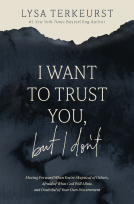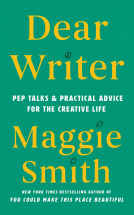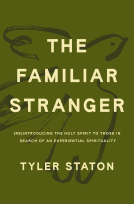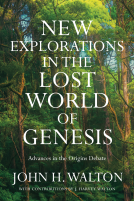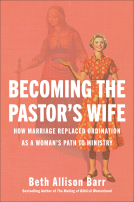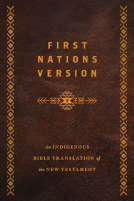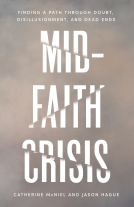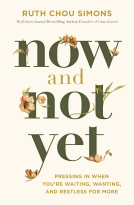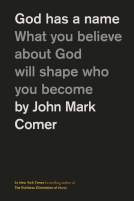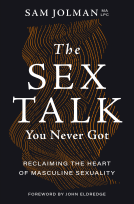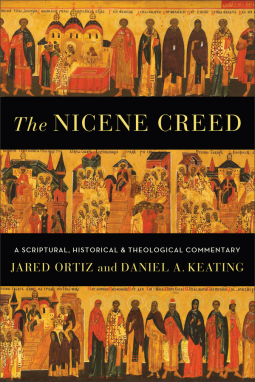
The Nicene Creed
A Scriptural, Historical, and Theological Commentary
by Jared Ortiz; Daniel A. Keating
This title was previously available on NetGalley and is now archived.
Send NetGalley books directly to your Kindle or Kindle app
1
To read on a Kindle or Kindle app, please add kindle@netgalley.com as an approved email address to receive files in your Amazon account. Click here for step-by-step instructions.
2
Also find your Kindle email address within your Amazon account, and enter it here.
Pub Date Apr 23 2024 | Archive Date May 14 2024
Baker Academic & Brazos Press | Baker Academic
Talking about this book? Use #TheNiceneCreed #NetGalley. More hashtag tips!
Description
This volume bridges the gap, providing an accessible introduction that explains how the Creed is anchored in the Bible and how it came to be written and confessed in the early history of the church. The authors show how the Creed reflects the purpose of God in salvation, especially in relation to Christians' divine adoption as sons and daughters, leading to glorification. Each chapter includes sidebars highlighting how the Creed has been received in the church's liturgy.
Professors, students, clergy, and religious educators will benefit from this illuminating and edifying guide to the Nicene Creed.
Advance Praise
“The Nicene Creed is the most widely accepted confession of faith among all Christian people. This superb exposition of the Creed, written by two faithful Catholic scholars, shows how this classic statement has practical relevance for believers of all confessions. A true treasure for the Lord’s people everywhere!”—Timothy George, Distinguished Professor, Beeson Divinity School, Samford University; cochair of Evangelicals and Catholics Together
“This splendid book provides a brilliant presentation of the Nicene Creed that is richly historical but accessible, and conceptually profound but clear, so that readers can understand why Christianity teaches and professes what it does. The book functions both as an excellent introduction to Christianity and as a reference for the pursuit of deeper understanding of the Catholic faith. In a world where many who are nonreligious have a creed of some kind that remains unstated, this statement of the Christian creed invites all to reflect on what is ultimately true and suggests plainly how true knowledge of God orients the human being toward happiness.”—Thomas Joseph White, OP, rector, Pontifical University of St. Thomas (Angelicum)
“In the introduction, we hear that ‘the creeds are precisely the medicine we need’ because of their ‘densely packed summaries of the Christian faith.’ One could say the same of this book, which commends itself as a wonderful tool—indeed, a treasure trove—for those prepared to follow the authors in unpacking these rich phrases that Christians have recited for centuries. Here is a powerful antidote that helps us to ‘overcome our contemporary allergy to truth’ as we lean deeply into the Nicene Creed, understanding how it addressed the problems of its day and continues to speak powerfully to our own age.”—Edith M. Humphrey, William F. Orr Professor Emerita of New Testament, Pittsburgh Theological Seminary
“Seasoned theologians Jared Ortiz and Daniel Keating here introduce the Creed in a book that would make a great textbook for introductory theology classes as well as for study groups. What shines forth is the sheer reasonableness of Christian faith. They also draw a link between faith and hope, both vitally needed in our culture of despair. Deeply rooted in Scripture and the Church Fathers, this book exemplifies what Christian instruction at its best can be.”—Matthew Levering, James N. Jr. and Mary D. Perry Chair of Theology, Mundelein Seminary
“An extremely well-thought-out introduction to the Nicene Creed, this book explains the Creed in a clear and compelling way. In an age impatient with complex truths and truth itself, this is no small feat. Demonstrating that the Creed is far more than a list of Christian beliefs, this book connects the Creed to both Testaments, church history, the words of the Church Fathers, the Catechism of the Catholic Church, and the prayers of the church in a way that not only teaches but also deepens faith. The faith of the church shines through in this text as the living, dynamic reality of unfathomable depth that it is, providing welcome clarity in our moment of deep confusion about the most basic Christian truths. More than an excellent teaching tool, this book is a great companion for prayer and for doing ‘the work of God,’ which is ‘to know the one he has sent’ (John 6:29).”—Jonathan J. Reyes, senior vice president for communications and strategic partnerships, Knights of Columbus
Available Editions
| EDITION | Other Format |
| ISBN | 9781540965110 |
| PRICE | $24.99 (USD) |
| PAGES | 240 |
Available on NetGalley
Featured Reviews
 Reviewer 1281795
Reviewer 1281795
A good overview of the Nicene Creed's content, development, and theological implications. Helpful for anyone unfamiliar with it or looking to see how it affects contemporary theology.
I came to faith in an independent Pentecostal Church, and have been an active member and minister in Pentecostal churches ever since (close to 40 years now). I am grateful for the vibrancy and energy of the Christian stream that I am in, but I am also acutely aware of the impact of poor discipleship and the 'flakiness' of many who call themselves 'Christian'. In the last 20 years of my faith journey, I have become aware of and appreciative of the Great Tradition of the Church, and I am increasingly sure that the neglect and dismissal of the ancient creeds has weakened us.
The idea of making a common confession of faith is deeply countercultural to the modern Westerner. Having been immersed in a culture of expressive individualism, defining our truth, and radical independence, joining in unity with others around the world and throughout history in confessing the Creeds is revolutionary. It may be the medicine we need!
The authors, Ortiz and Keating, are Roman Catholic scholars, and as such, I did find some small points of difference between their position and that of the Protestant church. However, these points of difference should not be the focus; instead, the overall picture of agreement with the Nicene Creed itself is in full view. I particularly enjoyed the first chapter in which the authors explain and defend the reasonableness of faith. I found their arguments to be both logical and encouraging.
The description of this book says, "Professors, students, clergy, and religious educators will benefit from this illuminating and edifying guide to the Nicene Creed." I agree and add that it should be in every church library and read by everyone who wants a greater understanding of the orthodox Christian faith. I have benefited from reading this book and recommend it to all who long for a greater understanding of Christianity.
Most of Christianity is considered to be a creedal religion, that is, governed by a specific statement of faith that members of a particular church must assent to (from the Latin credo meaning ‘I believe’). While not emphasized much, the Protestant tradition in which I grew up held to the 7th century Apostle’s Creed. Once I was confirmed into the Catholic faith, I became more aware of the Nicene Creed as well (Catholics pretty much recent one creed or another at the drop of a hat) … and I learned a lot about how these creeds came to be (predominately in response to various heresies that the early Church was struggling with), so I was extremely interest in this book to see if it confirmed what I already knew and if it presented anything new [to learn]. I am happy to report it delivered in spades.
The book is organized into six (6) chapters, each taking part of the Nicene Creed to examine (in broad strokes or themes). Each chapter begins with a general introduction of the over all theme or topic before it is further divided into sections that go into details on a phrase or statement within the chapter theme (such as what it means to say ‘I believe’ or say ‘one God’ et al). Included with the section header are references to the Old Testament, the New Testament and the Catholic Catechism (so obviously this is a very Catholic centric book). Each section generally has four (4) parts: A Theological Exposition to talk about the theology behind this part of the creed, A Witness to the Tradition that references early Church thinking about an element of this theology with source citations (this can repeated for different elements and/or viewpoints), Contemporary Issues that talk about current thinking and/or struggles with this element of the creed, and finally a part called Living the Mystery which talks about how the faithful should live out this part of the creed. There are a generally number of callouts/sidebars under the headed of Lex Orandi that review how a particular element is reflected within the liturgy as well. Finally at the end we get a straight up side buy side comparison of the different creeds, including the latin and greek versions plus a glossary of terms that is simply fantastic on its own … making this book incredibly well researched and organized; I highly recommended it.
This book analyzes the historical context and modern application of the Nicene Creed. The book is more academic in research and writing style, though anyone curious about the creed could benefit from such a thorough breakdown. Several parts of the book refer to aspects of Catholicism, but I did not find those parts to detract from the overall analysis. I especially appreciated learning about just how countercultural these words were for the early Christian church to proclaim as well as how the creed is a way to connect today’s diverse church.
Thank you NetGalley and Baker Publishing Group for this advanced copy. All opinions are my own.
Readers who liked this book also liked:
Terry M. Wildman
Christian, OwnVoices, Religion & Spirituality

